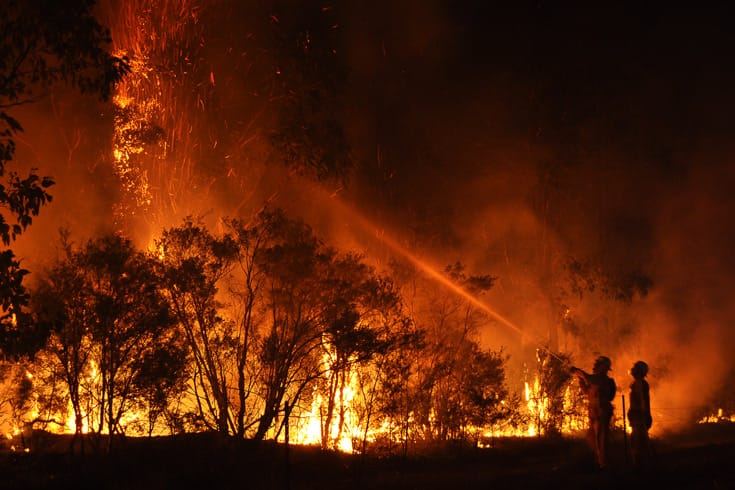Training dates will be set after the application period closes on February 26, 2025. Once you apply, we’ll be in touch with further details.

The Climate Reporting Pillars
In this session, we’ll reflect on three pillars of good climate reporting: localize, humanize, and “solutionize.” These pillars address the most pressing concern journalists have when reporting climate change: engaging audiences. We will see examples of excellent climate journalism and identify how these pillars are present in those stories. We’ll compare climate reporting to Covid-19 coverage and see what lessons we can extract from the latter.
Climate Science 101
This foundational session explores the basics of climate science for journalists. We’ll delve into the definitions of four key terms that are often (wrongly) used interchangeably: greenhouse effect, global warming, climate change, and climate crisis. By exploring these concepts, attendees will better understand the role of fossil fuels, recognize the main greenhouse gases, and learn the difference between weather and climate.
Making the Climate Connection Across Beats
Covering climate change is not a task just for climate journalists, meteorologists, and those dispatched to report from natural disaster–stricken areas. Covering climate is a challenge the whole newsroom must rise to. Journalists on every beat — from politics to healthcare, economy to finance, and sports to arts — can introduce the climate angle in their stories. This session helps participants understand what the climate connection is, how to identify it when reporting, and how to convey it to their audience. We’ll also discuss how to ask climate questions to enrich stories on every beat.
Myths & Recognizing Climate Disinformation and Greenwashing
Climate misinformation and disinformation are rife online. Bad-faith actors and unknowing users distribute misleading messages that can trick climate journalists, damaging their reputation and conveying lies to their audiences. In this session, we’ll review some of the most prevalent myths around climate change and learn to recognize misinformation in the wild. We’ll focus on greenwashing, one of the most prevalent kinds of disinformation, and see how journalists can remain safe online.
Climate Solutions Reporting
The climate story is not just a story of doom and gloom. Science tells us that there is still hope, and so in this session we turn to real solutions, and how to report on them critically. We’ll study the four pillars proposed by the Solutions Journalism Network, learn the difference between mitigation and adaptation, and discover which solutions can be applied in which cases.
Attribution: Connecting Climate Change to Extreme Weather Events
In this session, we’ll dive into the rapidly evolving field of attribution science, which quantifies climate change’s influence on an individual weather event. Often these studies highlight how hurricanes, floods, or heat waves were made much more likely and deadly due to climate change. Journalists will explore how attribution studies are conducted, discover what their findings can tell us about different types of extreme weather, and learn how to use different attribution tools to make the climate connection for their audience.
Reporting on Heat
In this session, we’ll explore how climate change is making heatwaves more frequent and more severe, their implications for public health, infrastructure, the economy, and ecosystems. Journalists will learn how to report on heat events and the measures being taken to mitigate their effects, with a focus on vulnerable populations. Sample coverage of recent heatwaves will be analyzed to highlight effective reporting techniques and to draw lessons on communicating the urgency and solutions to the public.
Reporting on Climate Justice
In this session, we’ll learn why climate change is a matter of justice (or rather injustice), and how to find and meaningfully apply a climate justice lens to your reporting. We’ll study the concept of “loss and damage,” key to reporting on international climate diplomacy. We’ll also learn which communities are currently most affected by climate impacts and why, understand how to build a climate framework around human stories, and reflect on the ethical considerations of climate reporting.
Reporting on International Climate Relations
In this session, participants will delve into the global political landscape of climate policy, focusing on the international processes, agreements and negotiations that shape climate action worldwide. We will spotlight the United Nations’ Conference of the Parties (COP) as the central stage where governments negotiate, under the gaze of civil society organizations and industry players. We’ll explore tools to track emissions, targets, pledges and finance mechanisms. Participants will understand the main trends in international climate relations and the positions of the world’s main actors.
Reporting on Tech and Energy: The Green Transition
In this session, we’ll delve into the intersection of technology and energy within the context of the green transition. We will explore how technological advancements are driving the shift towards renewable energy sources and what this means for journalists covering these beats. Key topics will include innovations in solar and wind power, energy storage solutions, smart grids, and the role of policy in promoting clean energy technologies.
Reporting on Food and Agriculture
Changing climate patterns are affecting crop yields, livestock, and food security, and audiences need help understanding the climate-agriculture connection. We’ll discuss sustainable agricultural practices and innovations, and journalists will learn how to report on the challenges and opportunities within the agriculture industry, including the impact on farmers, supply chains, and global food systems. Case studies will highlight successful adaptation and mitigation strategies in the agricultural sector.
Apply to Register
Contact
To learn more about CCNow’s training program, please contact our training department at training[at]coveringclimatenow[dot]org.


